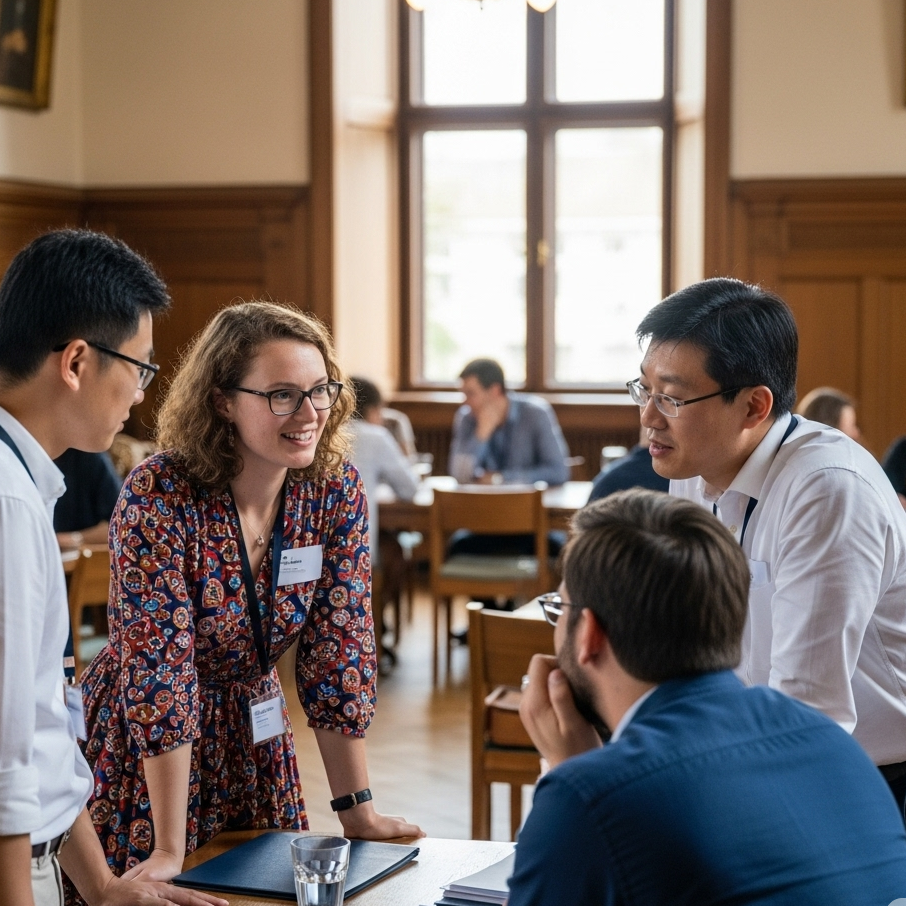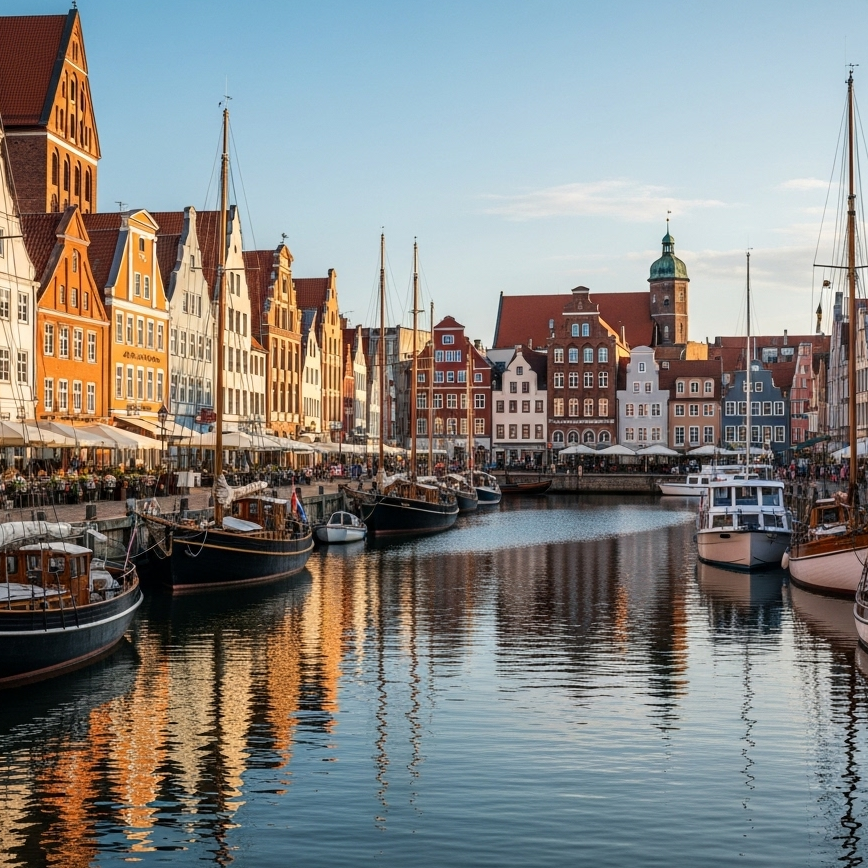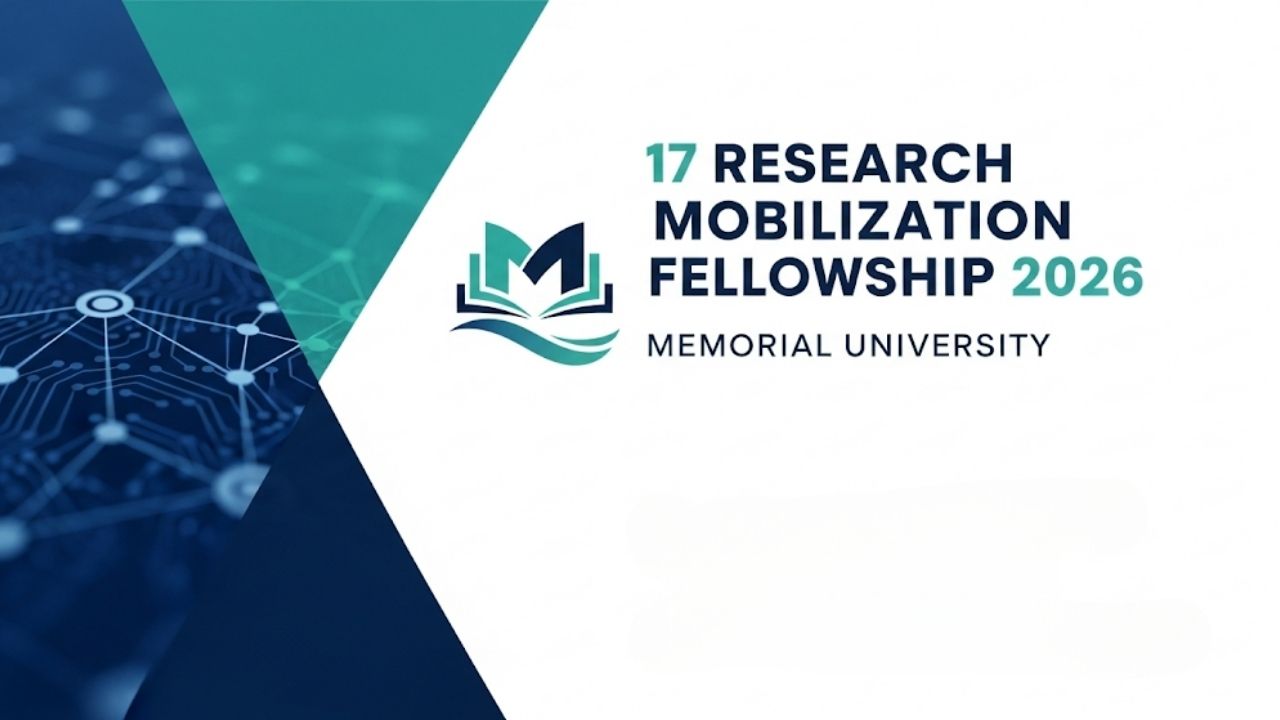Embarking on the application for the Germany DAAD Alfried Krupp Wissenschaftskolleg Greifswald Fellowships 2026 can feel like a monumental step, but it’s a journey rich with potential. This prestigious fellowship offers a unique opportunity for exceptional academics to dedicate themselves to a significant research project in a serene and intellectually stimulating environment. If you’re a promising junior or a seasoned senior academic with a brilliant research idea, you’ve come to the right place. This guide is designed to walk you through every step, transforming a complex process into a clear and manageable path toward your research goals in Germany.

The Alfried Krupp Wissenschaftskolleg Greifswald is not just a place to work; it’s a vibrant community where scholars from diverse disciplines converge. Located in the charming Hanseatic city of Greifswald, the Kolleg provides the perfect backdrop for focused research and interdisciplinary dialogue. This fellowship, supported by the German Academic Exchange Service (DAAD), is a testament to Germany’s commitment to fostering international scientific collaboration.
Understanding the Fellowship: What’s on Offer?
At its core, the Alfried Krupp Fellowship is designed to give you one of the most valuable resources a researcher can have: uninterrupted time. Successful fellows are invited to spend one or two semesters at the Kolleg to concentrate entirely on their proposed research project, free from the usual university teaching and administrative duties.
Here’s a snapshot of what the fellowship typically provides:
- A generous monthly stipend: To cover living expenses, allowing you to immerse yourself fully in your research.
- Accommodation: Fellows are provided with comfortable, well-equipped apartments within the Kolleg.
- An ideal research environment: You’ll have access to your own office, along with the extensive resources of the University of Greifswald’s library.
- A collaborative community: The Kolleg hosts regular colloquia where fellows present and discuss their work, fostering a rich intellectual exchange.
In my experience advising applicants, one of the most compelling aspects of this fellowship is the profound sense of community it fosters. It’s an environment built on mutual intellectual respect and curiosity, which often leads to groundbreaking interdisciplinary insights.

Are You Eligible? Key Requirements for Applicants
The fellowship is open to both junior and senior researchers from a wide array of academic fields, including the humanities, social sciences, and natural sciences. While the specific eligibility criteria can be fine-tuned each year, the foundational requirements remain consistent.
For Junior Fellows:
- You should have completed your doctorate within the last five years.
- A strong academic track record, including publications in reputable journals, is essential.
- You must present a compelling and well-defined research project that can be realistically completed within the fellowship period.
For Senior Fellows:
- You are an established researcher in your field with a significant publication record.
- Your application should be centered around a major research project that will benefit from a dedicated period of focused work.
- Demonstrated experience in leading research projects and a commitment to interdisciplinary exchange are highly valued.
It’s crucial to check the official Alfried Krupp Wissenschaftskolleg Greifswald website for the most up-to-date eligibility details for the 2026 cycle as the call for applications is announced.
Crafting a Winning Application: A Step-by-Step Guide
A successful application is one that tells a compelling story about you, your research, and why the Greifswald Kolleg is the perfect place for you to thrive. Let’s break down the key components.
1. The Research Proposal: Your Academic Blueprint
This is the heart of your application. Your proposal must be clear, convincing, and meticulously planned. It should not only outline what you plan to do but also why it’s important and how you will achieve it.
A strong proposal typically includes:
- A Clear Abstract: A concise summary of your project.
- Research Questions: What are the central questions your project seeks to answer?
- State of the Art: Briefly situate your project within the current academic debate. How does it contribute to or challenge existing scholarship?
- Methodology: Detail the methods you will use to conduct your research.
- Work Plan: Provide a realistic timeline for your project, breaking it down into phases for the one or two semesters you plan to be at the Kolleg.
I’ve seen many successful applicants excel by demonstrating not just the academic merit of their project, but also its potential for interdisciplinary connection. Think about how your work could spark conversations with scholars from other fields.
2. The Curriculum Vitae (CV): Your Professional Story
Your CV should be up-to-date and tailored to highlight your academic achievements. Include a comprehensive list of your publications, presentations, awards, and any previous research funding you have received. For junior scholars, be sure to emphasize the quality and impact of your doctoral work.
3. Letters of Recommendation: Your Academic Endorsements
Choose your referees wisely. They should be senior academics who know you and your work well and can speak to your potential for success. Provide them with your research proposal and CV well in advance of the deadline to ensure they can write a strong, detailed letter on your behalf.

Life in Greifswald: A City of Science and Sea
Choosing a fellowship isn’t just about the institution; it’s also about the place you’ll call home. Greifswald is a beautiful city on the Baltic Sea coast, known for its historic university, founded in 1456, and its stunning brick Gothic architecture. It offers a high quality of life with a relaxed pace, yet it’s a dynamic hub of research and innovation.
The city’s size makes it easy to navigate, and the proximity to the sea provides ample opportunities for recreation and relaxation. This blend of a focused academic environment and a pleasant living situation is one of the fellowship’s most attractive features.
The Application Timeline: Key Dates to Watch
While the exact dates for the 2026 fellowship will be announced closer to the time, the application window typically opens in the spring of the preceding year. It’s essential to monitor the official websites of both the Alfried Krupp Wissenschaftskolleg Greifswald and the DAAD for the official announcement.
- Anticipated Application Opening: Spring 2025
- Anticipated Application Deadline: Late Summer/Early Autumn 2025
- Selection Decision: Winter 2025/Early 2026
- Fellowship Start: October 2026
Final Thoughts: Your Research Journey Awaits
The Germany DAAD Alfried Krupp Wissenschaftskolleg Greifswald Fellowships 2026 offers a remarkable opportunity to advance your academic career in a supportive and intellectually vibrant setting. The path to a successful application is paved with careful preparation, a compelling research vision, and a clear articulation of your potential. By focusing on the quality of your research proposal and thoughtfully assembling your application materials, you can present a powerful case for your candidacy.
TILT Writing-Enriched Curriculum Fellowship 2025
Your Essential Guide: The UK Youth Mobility Scheme Ballot Opens Again in July 2025
FAQs
Q1:What is the language of instruction and research at the Kolleg?
The primary working languages are German and English. A good command of English is essential for participating in the weekly colloquia.
Q2:Can I apply if my research is in the natural sciences?
Absolutely. The fellowship is open to outstanding researchers from all academic disciplines, including the natural and life sciences.
Q3:Is it possible to bring my family with me?
The Kolleg is family-friendly and provides larger apartments for fellows who wish to bring their partners and children. It’s advisable to discuss your specific needs during the application process.










